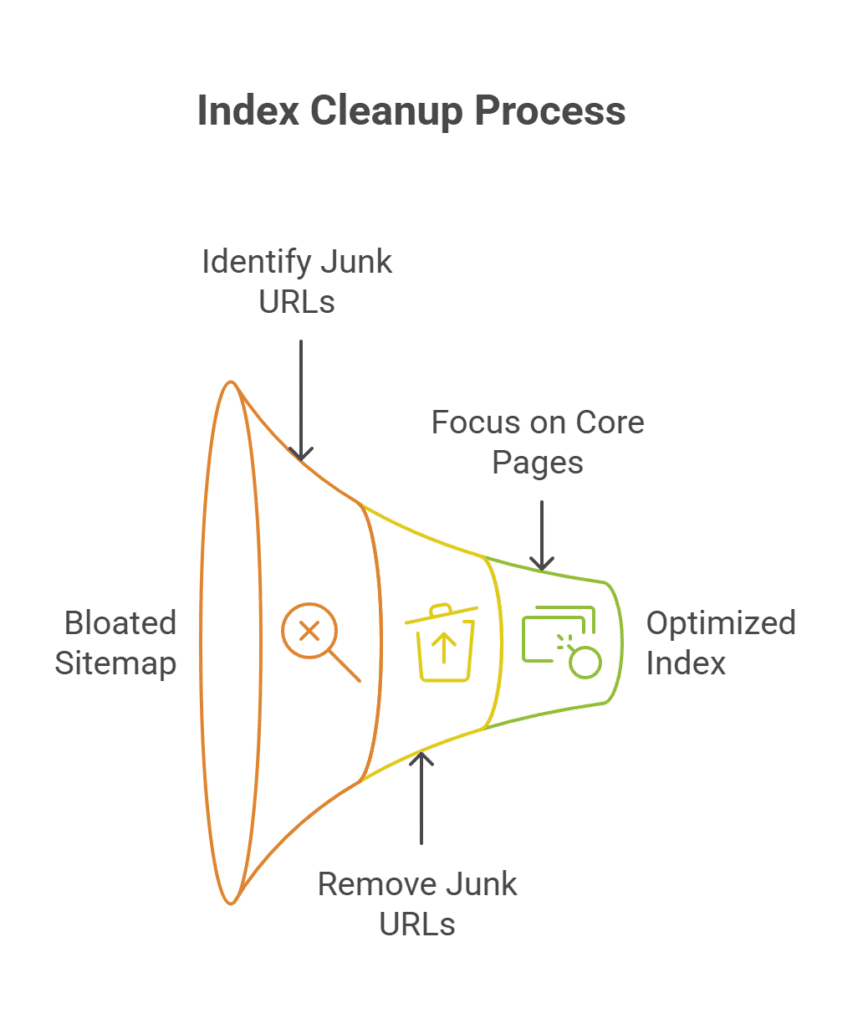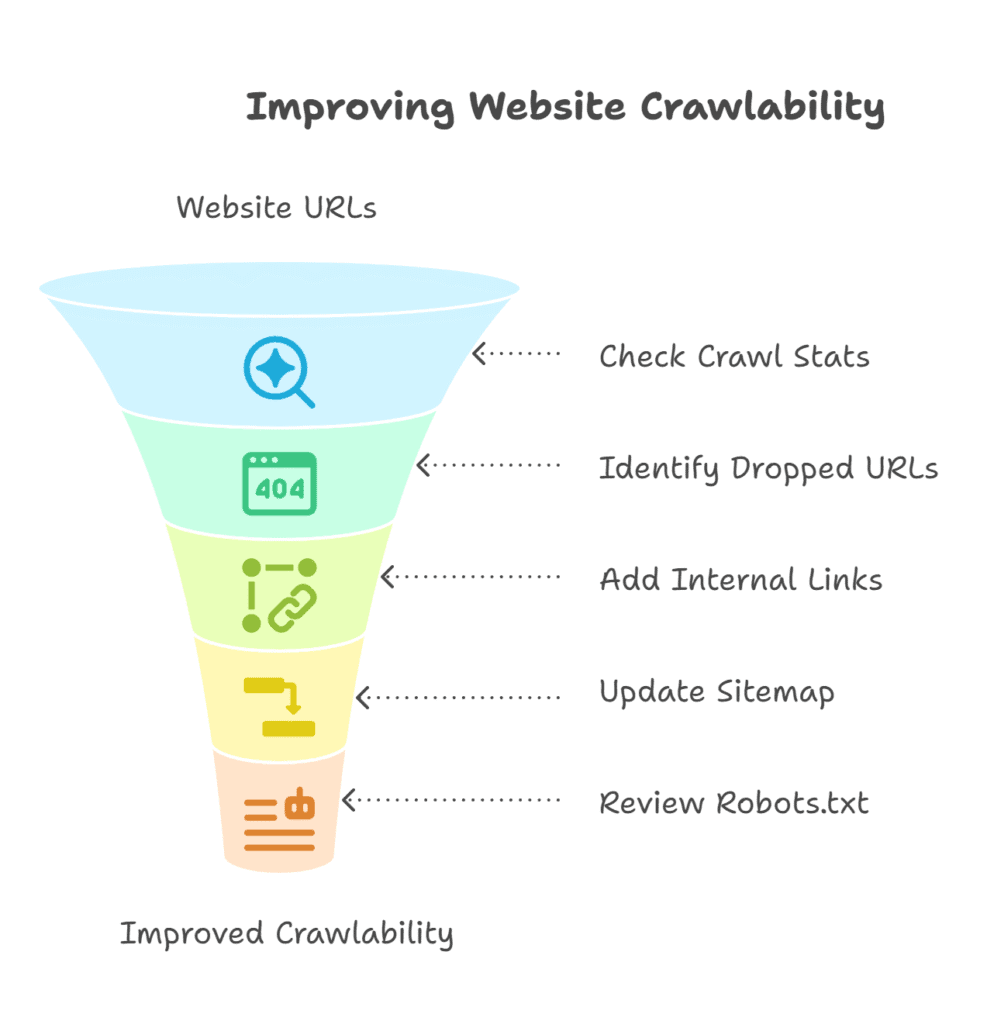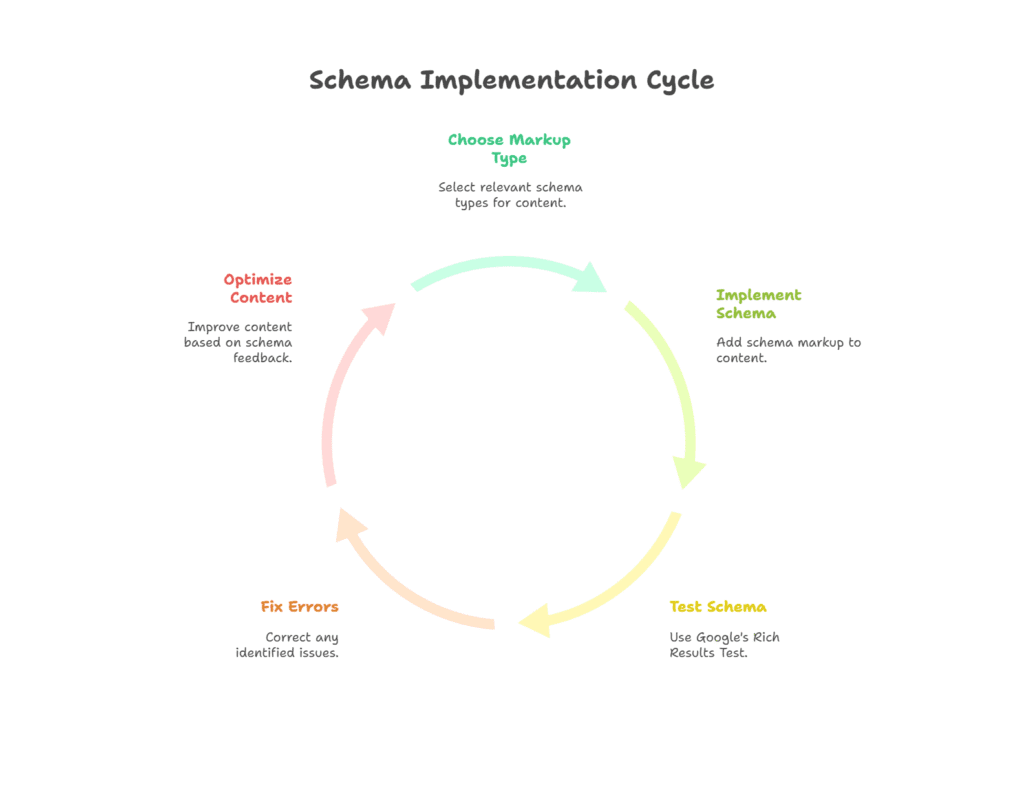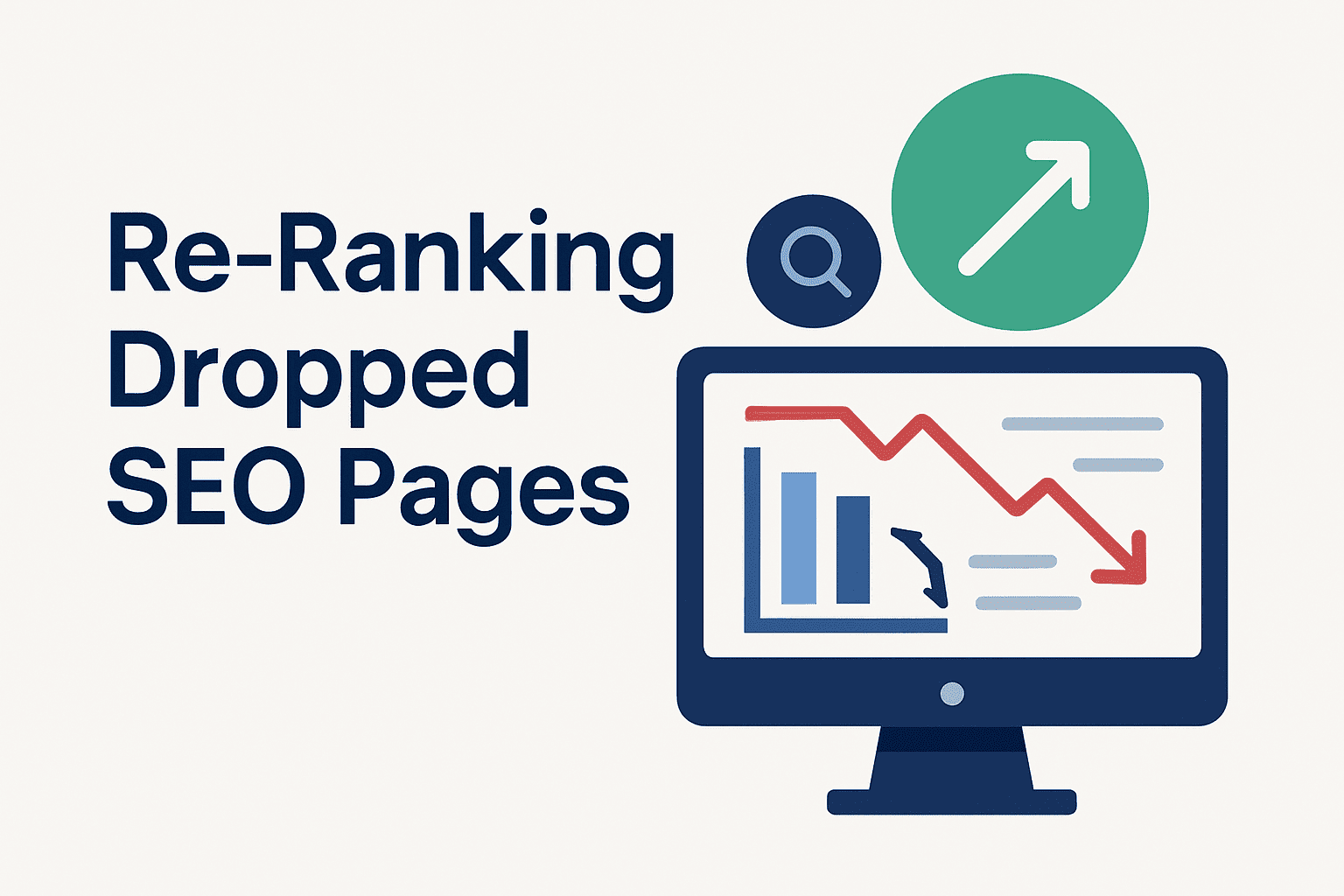Introduction
Your traffic dropped. Pages that used to bring leads, sales, and clicks are no longer showing up.
It hurts. Especially when you know the content is good. You spent a lot of time on it. Maybe even paid someone to write it.
But the truth is, it’s not always about content. Search engines can ruin your best work for reasons that have nothing to do with writing.
Maybe Google crawling pages it shouldn’t. Maybe your links are broken. Maybe the page lost its place in your site’s structure. These things creep in quietly. And once they do, your rankings take the hit.
If that sounds familiar, you’re not alone. The fix is technical, but doable. We’ll break it down step by step. If you’re looking for expert support, consider working with an SEO Expert or a digital marketing agency that knows how to handle these issues.
1. Clean Up the Index: Remove What Doesn’t Belong

Start by checking what Google sees. Junk pages can hurt rankings for quality ones.
Open Google Search Console (GSC) and look for low-value pages: /amp, /tag, pagination, or outdated archives. If they’re not supposed to rank, they shouldn’t be indexed. Use noindex, canonical tags, or update your robots.txt to block them. Then resubmit your sitemap.
2. Fix Internal Linking: Feed Authority to the Right Pages
Pages with fewer internal links get less SEO weight. That weight matters.
Audit your internal links using Ahrefs or Screaming Frog. Compare top-performing pages to underperformers. Check how many internal links each one gets.
Link from high-traffic or authority pages back to the ones that dropped. Use anchor text that fits naturally.
This is something a digital marketing agency can handle at scale, especially when restructuring large websites.
3. Check Crawl Activity and Logs
If Google isn’t crawling your key pages, they’ll struggle to rank.

Use GSC’s crawl stats or server logs (if available). Look at the frequency of crawls on the dropped URLs. If they’re missing, Google’s ignoring them.
Add internal links. Add the URLs to your sitemap. And make sure they’re not blocked accidentally by your robots.txt.
4. Schema Markup: Help Search Engines Understand the Page
Schema makes your content easier to process. It adds clarity, not fluff.
Use relevant markup types like Article, FAQ, Breadcrumb, or Product. This helps Google categorise your content better.

Check your schema using Google’s Rich Results Test. Fix any errors or warnings.
Need help implementing the schema correctly? A technical SEO specialist can make sure it’s done right.
5. Lost Links? Rebuild Authority
Backlinks are still one of the top ranking signals. Lost links mean lost rankings.
In Ahrefs or SEMrush, run a link loss report. See which pages lost backlinks. If you spot key links missing, reach out to site owners or find similar sources.
Rebuild with guest posts, niche directories, or related blogs. Focus on quality over quantity.
This is often included in ongoing link-building services offered by a seasoned digital marketing agency.
6. Fix the Foundation: Sitemap, Redirects, and Structure
Pages that are hard to reach don’t get crawled well. Or ranked.
Make sure your sitemap includes every important page. Remove outdated or broken URLs.
Check for internal redirects or chains that waste crawl budget. Simplify where possible.
Keep your URL structure clean. A page buried under five slashes is harder to crawl and understand.
7. Don’t Rewrite Good Content—Update It
If the page is solid, don’t overhaul it. Make it fresh.
Add updated stats. Embed recent case studies. Refresh the publish date. This tells Google the content’s still alive.
Avoid cramming keywords or reworking everything. You risk hurting a page that’s already optimized.
If you’re unsure, an SEO content specialist can help identify low-effort, high-impact updates.
8. Authority Matters More Than Tricks
Without some trust from other sites, even perfect content struggles.
Google still relies on PageRank, and that means links from other domains. Internal links help, but they’re not magic.
Focus on getting referenced by trusted, topic-relevant websites. That’s where long-term ranking strength comes from.
9. Ranking Isn’t Just About Writing
Your pages dropped not because they weren’t helpful. They dropped because your site stopped showing them properly.
Fix your index. Guide Google to your best stuff. Keep your site lean. And support your top pages with real authority.
If you’re managing this solo and feeling stuck, consider speaking with a reliable SEO specialist who can audit your site, prioritize the fixes, and guide your recovery strategy.
Need help getting your rankings back? Whether it’s technical SEO, content clean-up, or full-scale strategy, a trusted digital marketing agency can take it off your plate and get your site back on track.

